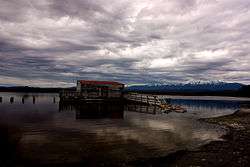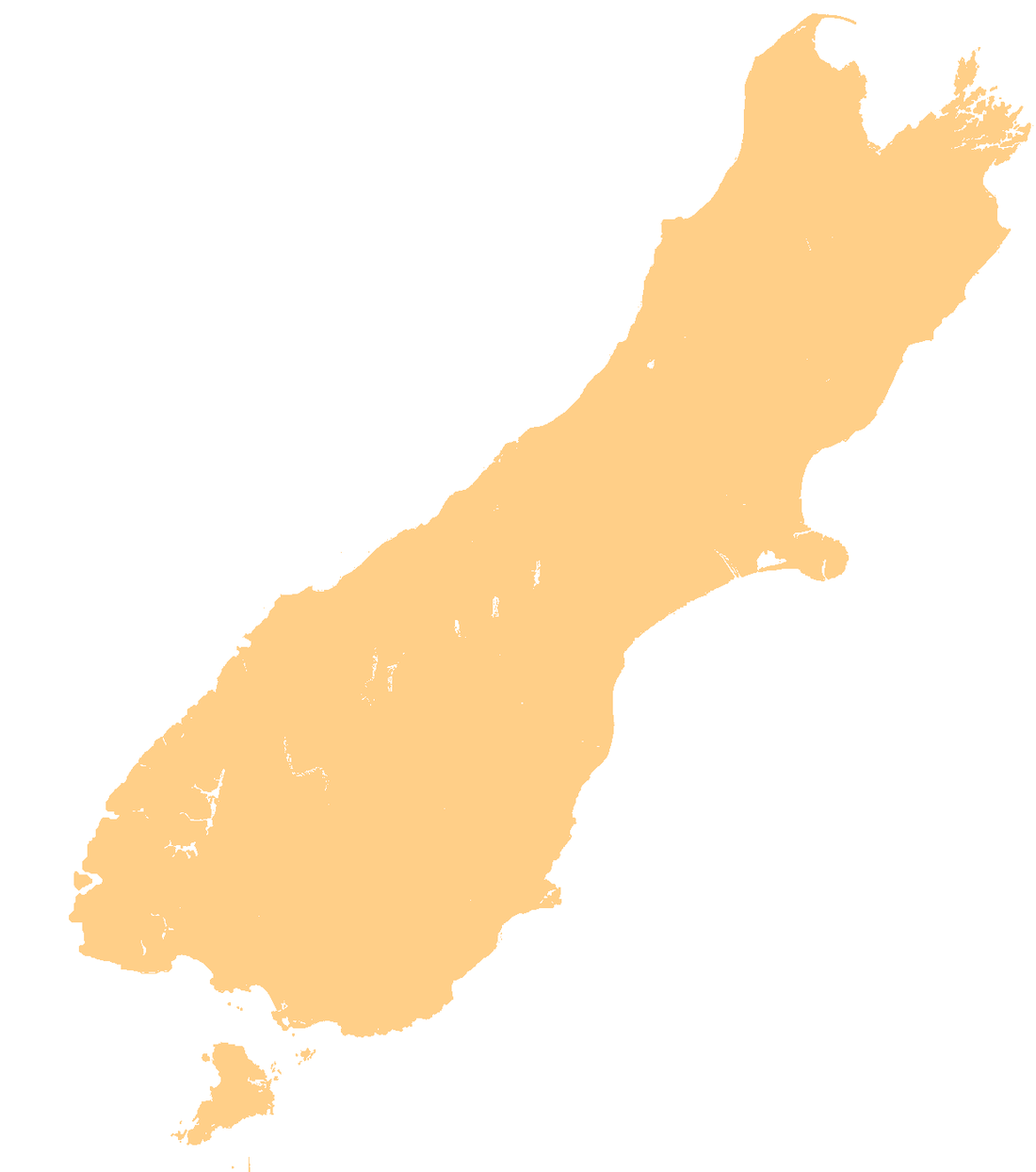Ōkārito Lagoon
Ōkārito Lagoon or Okarito Lagoon is a coastal lagoon on the West Coast of New Zealand's South Island. It is located 130 kilometres (81 mi) south of Hokitika, and covers an area of about 12 square kilometres (4.6 sq mi), making it the largest unmodified wetland in New Zealand.
Ōkārito Lagoon Okarito Lagoon | |
|---|---|
 Ōkārito Lagoon boat house | |
 Ōkārito Lagoon | |
| Coordinates: 43°12′S 170°13′E | |
| Country | New Zealand |
| Region | West Coast |
| District | Westland District |

_(14596979517).jpg)
The settlement of The Forks is located just inland, on the banks of the Okarito River.[1]
The New Zealand Ministry for Culture and Heritage gives a translation of "place of young shoots of the bullrush" for Ōkārito.[2]
Geography
Several small rivers drain into the lagoon, and it is the outflow of Lake Mapourika. The lagoon is home of many species of wading birds, notably the extremely rare (in New Zealand) kōtuku (Eastern great egret). Ōkārito is the kōtuku's only New Zealand breeding place.[3][4]
At the southern end of the lagoon is the small settlement of Ōkārito. Originally a gold mining township, the population reached over 1,500 in 1866.[5] It is now permanent home to only about 30 residents; among them Booker Prize-winning writer Keri Hulme and landscape photographer Andris Apse.
Bird watching, eco-tours and kayak tours of the lagoon are available, and there are a number of local walking tracks.
In 1909 the bones of a whale beached in 1908, 6 miles (9.7 km) north of the settlement were taken to Canterbury Museum and displayed and called the Okarito Whale.[6][7]
Wildlife
The Kotuku and more than 76 other bird species have been recorded at Ōkārito. These species include migratory waders, gulls, shags and terns on the estuarine mud flats as well as black swans, scaup, crested grebes, and ducks in freshwater areas. Tui, bellbird, kingfishers, pigeon, crakes, fern birds, and bitterns and crakes inhabit the wetland areas.[8]
The rarest species of kiwi, the Okarito kiwi, or Rowi, is found near the town of Ōkārito.[9] It is also the only nesting ground for white herons in New Zealand.[10]
References
- GEOnet Names Server (GNS)
- "1000 Māori place names". New Zealand Ministry for Culture and Heritage. 6 August 2019.
- New Zealand Birds. "New Zealand Birds – Birds – Gallery – Kotuku, White heron, Egretta alba modesta". Nzbirds.com. Retrieved 13 January 2015.
- Archived February 24, 2008, at the Wayback Machine
- "Okarito Travel Guide Whataroa White Herons Okarito Lagoon Tours West Coast New Zealand". Glaciercountry.co.nz. Retrieved 13 January 2015.
- "The Okarito Whale". The Queenslander. 22 May 1909. p. 40. Retrieved 24 November 2012 – via National Library of Australia.
- "A NOTABLE EXHIBIT". The Northern Star. Lismore, NSW. 29 October 1908. p. 2. Retrieved 24 November 2012 – via National Library of Australia.
- LibEllinas (2 August 2013). "Okarito Lagoon". Activeadventures.com. Retrieved 13 January 2015.
- Robertson, H.A. (2017). "Okarito brown kiwi". New Zealand Birds Online. Retrieved 10 March 2020.
- Adams, R. (2017). "White heron". New Zealand Birds Online. Retrieved 10 March 2020.
External links
| Wikimedia Commons has media related to Okarito Lagoon. |
- Okarito Lagoon New Zealand Birds Limited
- Okarito Community Association